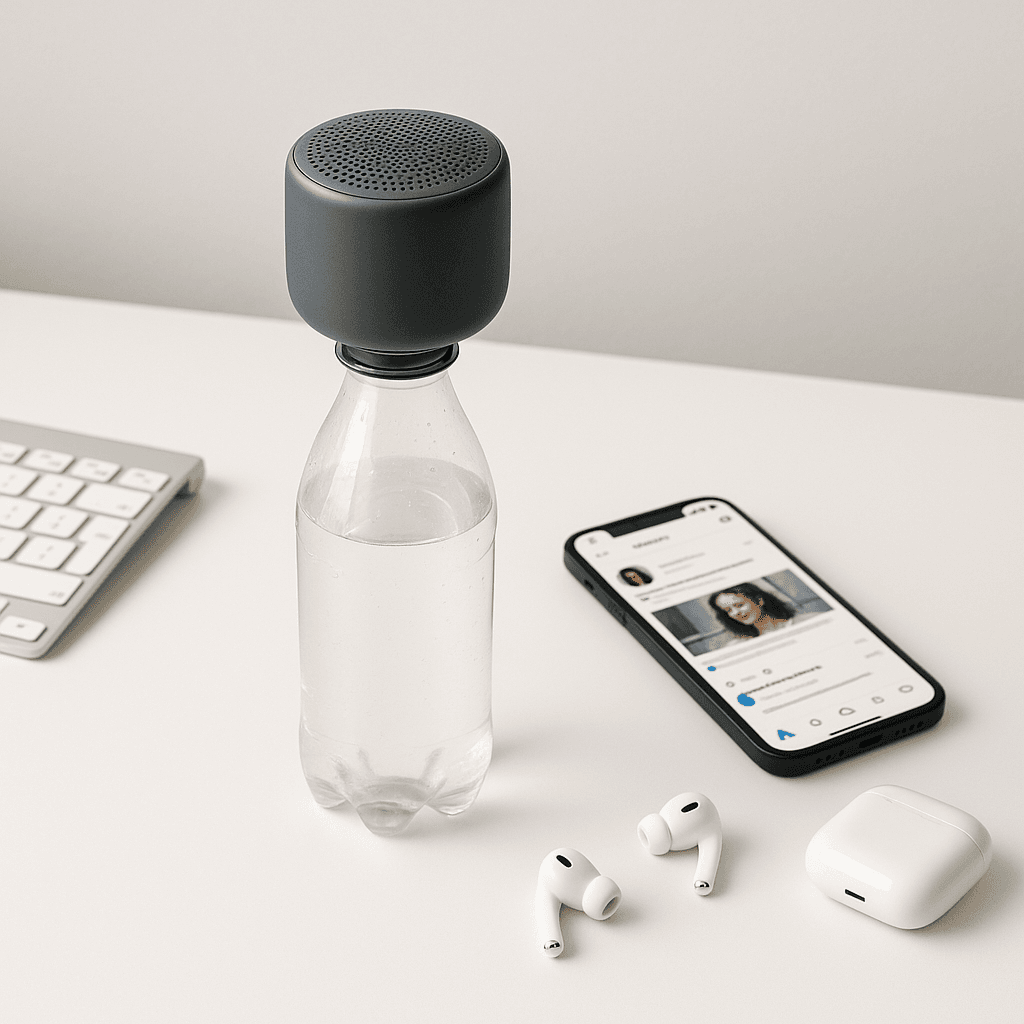The Sodapop Bluetooth speaker has been making waves across TikTok Shop with its quirky promise to transform empty soda bottles into bass-boosting chambers. WIRED's Chris Haslam puts this viral gadget to the test, examining whether its 10-decibel bass claim and bottle-attachment gimmick justify the hype in an increasingly crowded portable speaker market.
The Sodapop Bluetooth speaker landed on WIRED's radar the same way it's captured millions of TikTok users - through viral marketing that promised something genuinely unique in the crowded portable speaker space. When brands collectively spend $247 billion on social media ads, standing out requires either exceptional innovation or clever gimmicks.
Sodapop chose the latter route. This compact Bluetooth speaker threads directly onto standard plastic bottles, transforming your empty Mountain Dew or Coca-Cola container into what the company calls a "bass chamber." The physics seem sound on paper - larger enclosed air volumes typically enhance low-frequency reproduction. The manufacturer claims this setup boosts bass output by up to 10 decibels and doubles the perceived volume in mid-bass frequencies.
"Does this really work?" became the question echoing through WIRED's Slack channels when the product first surfaced. It's the same curiosity driving TikTok Shop purchases, where viral audio products regularly rack up millions of views before anyone's actually heard them perform.
The appeal is obvious. Most portable speakers sacrifice bass response for portability, leaving listeners with thin, treble-heavy sound that works fine for podcasts but falls flat with bass-heavy music. If Sodapop's bottle trick actually delivers meaningful low-end enhancement, it could solve a real problem with an elegant hack.
But here's where viral marketing meets audio reality. Chris Haslam's hands-on testing reveals the gap between social media promises and acoustic performance. While the bottle attachment does create some bass enhancement, the overall audio quality doesn't justify the price premium over established competitors.
The Sodapop represents a broader trend in social media-driven product launches. TikTok Shop has become a proving ground for quirky tech gadgets that prioritize shareability over genuine innovation. Products gain momentum through algorithm-friendly demonstrations - watching someone screw a speaker onto a Pepsi bottle makes for compelling 15-second content.
This viral-first approach to product development has created both opportunities and pitfalls. Success stories like Ring doorbells and Popsockets prove that social platforms can launch genuinely useful products. But the same ecosystem also amplifies gadgets that look better in videos than they perform in daily use.












